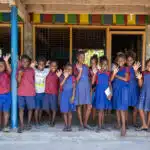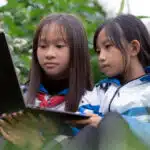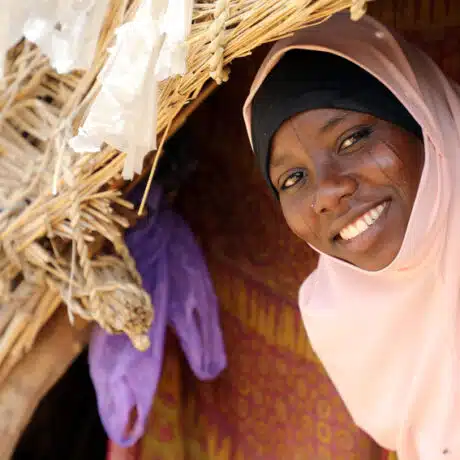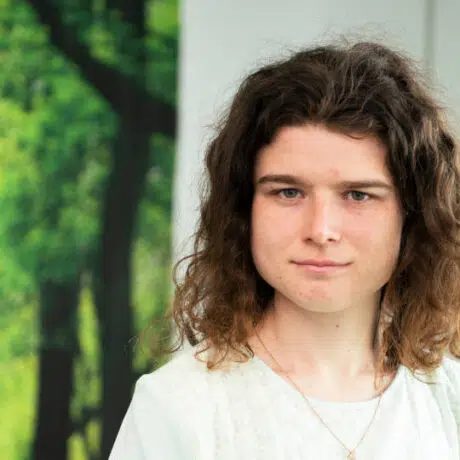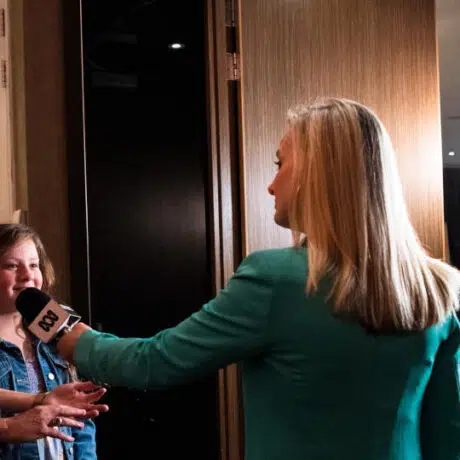News and Stories - Girls Rights - 11 November 2021
Food for Education
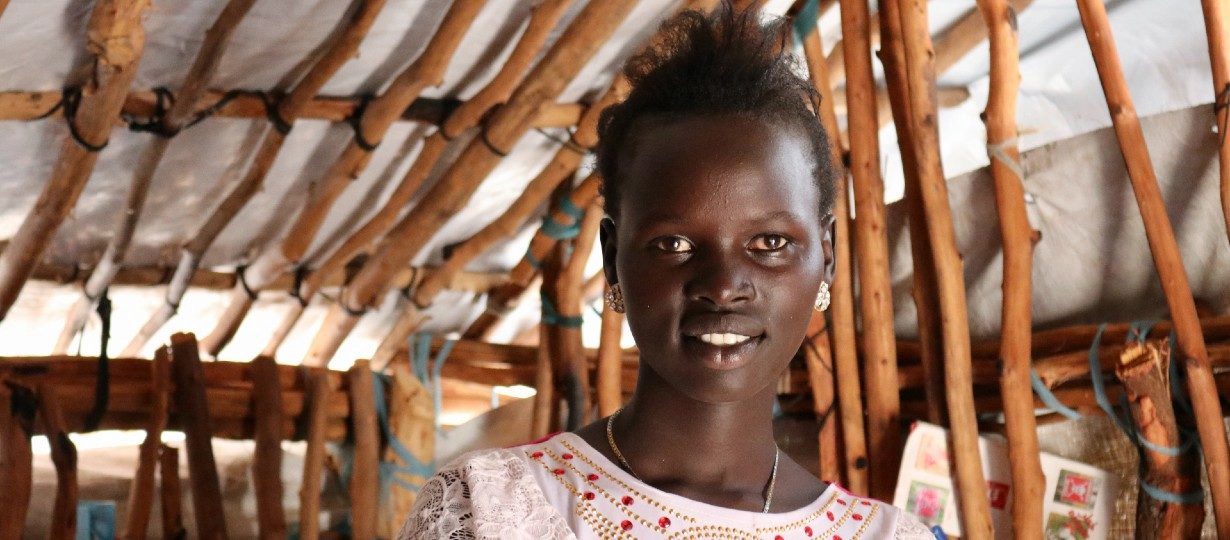
How you are helping empower girls, boys and the entire community
In South Sudan, girls like Rebecca and Saraha face unique challenges when it comes to completing their education.
Saraha is 10 years old and was born in 2011, the same year that South Sudan celebrated its independence. Since then, ongoing conflict has made it difficult for her to go to school, but Saraha is determined – she wants to be a doctor when she grows up!
Rebecca was forced to drop out of school to help support her family, by getting married when she was 16.
“Nobody says no to early marriage because girls are considered a source of income for their families,” explains Rebecca. “The boy’s family gives cows to the girl’s family to get married. Cows are the wealth here. My family did the same, they received sixty cows in exchange for my marriage two years ago.”
Plan International is working to make sure girls like Rebecca and Saraha can complete their education despite their circumstances, and it’s thanks to your support.
In a country where 91% of the population face acute hunger and 70% of children are out of school, our teams across South Sudan and Australia have worked hard to research and develop a holistic approach – one that helps all students learn and grow.
Our Food for Education program supports students in 165 schools across five states in South Sudan. Participating schools receive deliveries of food from our partner organisation , the UN’s World Food Program, and community members are trained to store the food securely and serve a free nutritious school lunch to both male and females students every day.
This provides an incentive for families to send their daughters to school, because often girls are kept home to help the family find food. In some schools where it’s more challenging to bring girls to school, Plan International tries to encourage them and their families by providing take home rations. When girls attend over 80% of their classes for the month, they are able to take home a month’s rations, relieving the pressure on the entire family. This means that parents don’t have to send their daughters out to work or search for food and a dowry becomes less of a necessity.
When coupled with the school committee’s positive messaging about girls’ education and child protection, the community sees the value and opportunities education holds, not only for boys but for girls too, and sending a child to school becomes a viable option for even the most vulnerable families.
In addition, the program also champions sustainable solutions to drought and food insecurity. In 2021, school kitchen gardens were established in participating communities, giving children an opportunity to learn about the environment and grow their own food.
Alongside the regular curriculum on hygiene, nutrition and safety, Food for Education school committees were quickly upskilled during the pandemic, enabling them to also share health information and supplies to prevent the spread of COVID-19.
Our project staff and project participants in South Sudan reported:
- girls’ school enrolment increased by 60%
- a reduction in the number of girls experiencing forced marriage
- a reduction in the levels of stunting and physical impairments due to malnutrition
- equal participation in learning between boys and girls.
Thanks to this program, 190,418 boys and girls like Saraha and Rebecca are being supported by their community to finish school. Rebecca is one of only three girls in her community to finish grade eight, and for this, she is proud. “If I have an education, I can do everything. People who learn computer skills get jobs. Once they have skills, they are recognised and respected.”
This project was funded by the Australian Government through the Australian NGO Cooperation Program (ANCP) and complemented with funds generously donated to Plan International Australia from the Australian public.
You can help support girls’ education by making a donation.
Learn more about our work to support girls education.

